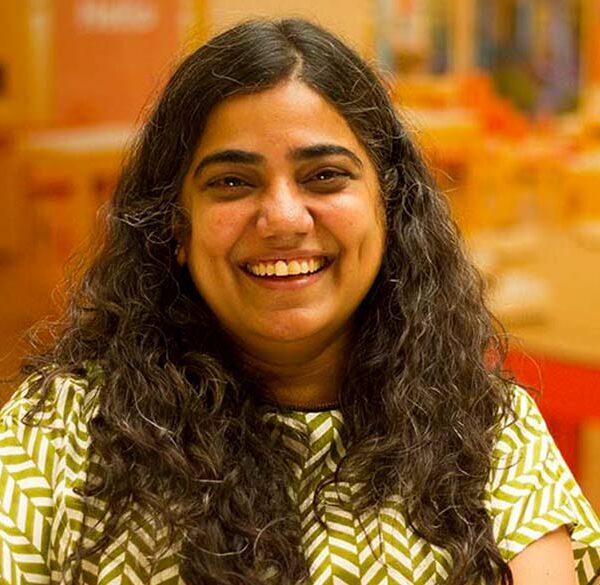She was plump. When prospective groom’s family used to come and meet her, they never tried to publicly hide their disappointment with her increasing weight. It did not matter if she was a teacher and much more intellectual than their son. What mattered was that she looked fat. A fact she had grown to accept, with deep pain, as she grew up. She tried everything to lose weight, look skinny, be it medicines, Ayurvedic pills, exercise, meditation, but nothing helped.
She could never lose weight.
Soon after her marriage, as she stepped inside her new ‘home’, she felt claustrophobic with the way every eye glared at her. She looked fat and chubby in her newly-wed saree, perspiring after so much hullabaloo. She could feel people, even young kids, laughing behind her back, making fun of her.
But she did not know that the worst was yet to come.
Starting from her mother-in-law to her sister-in-laws, everyone had a problem with what she ate, how much she ate and when she ate. She could no longer eat her favourite curry and rice, leave ‘Golgappas’. Pasta was a big ‘no, no’. Her husband never asked her out to dine with him in any restaurants. In the first few weeks, she was made to eat only boiled vegetables. She had loved smacking beef sandwiches too, but now, it was nothing but a sin in her household.
She felt like a caged bird, with every little move monitored. Her mother-in-law kept advising her that if she did not control her weight, she would have issues in pregnancy. She would become diseased and quite curtly, they had even mentioned how no man likes a woman who is too voluptuous.
Her food was no longer her right. It made her cry silent tears. There was no one to support her. She was called ‘lazy’ and ‘moti’, almost every day, making her feel small and insignificant.
Bridal Diets for Glowing Skin
These days the web space is literally mushrooming with tips and suggestions about bridal diet. It includes the entire diet plan, what to eat and drink to look your best on your wedding day. There are suggestions on how a would-be bride would be quite focused on shedding weight at least 6 months before her marriage, so that she can attain that ‘perfect look.’
That ‘perfect look’ is always a façade, an idea which never really exists in reality. And would-be brides try everything possible to attain that look. Even after marriage, most of them who stay in joint family set-up, do not have the courage to prevent the ways in which they are being domesticated by their in-laws and new ‘home’. They simply follow whatever restrictions are put on to them. Those who do not, have to get mentally prepared to listen to sarcastic complains every now and then, asking them to watch over their weight.
It becomes really difficult for women who, for example, have been avid non-vegetarian eaters, to be married in a pure vegetarian family. They have to say goodbye to their temptations and automatically switch over to vegetarian food, be it cooking or eating them. They simply cannot complain and thus, it becomes even more difficult to adjust. But as the Indian patriarchal society is, a married woman trying to own up her demand for her right to food would be treated with indifference as well as criticism. In the long run, this kind of attitude prevails on how she would be allowed to feed her own children. And if god forbid, she has a girl child, it becomes even more difficult for her to keep her nourished.
Who controls your food choices?
Until and unless you are living independently alone, away from your family, your food choices are always a result of your family’s mandate. In several homes, girls are often malnourished, especially in the rural areas, while the boys are given off lip-smacking delicacies to feed themselves.
A girl, is always considered a burden, she is often not even fed well, because ultimately she has to go to some other home. She is always a liability.
Increasing studies show that malnutrition rates are much higher in girls than in boys. Girls in poor households are inadequately breast-fed and less likely to be provided with quality healthcare and access to sanitation. The problem of malnutrition starts well before birth in countries such as India, where there are high rates of child marriage, despite the age-old practice being illegal. About 47 percent of women aged between 20 and 24 were married before the age of 18 in India, according to the latest government figures.
Vicous Cycle
Undoubtedly, the partial way in treating women in Indian societies continues to be very patriarchal. They have to restrict how they look, feel and eat and have very little ways to vent out their emotions. Most of the brides get domesticated and they do not let their inner voice and demands overpower. They do not show their real demands and easily let their new ‘home’ decide their own rights, even the right to food.
Women Get Less: Taking A Stand
This for sure is quite obnoxious. A newly-wed bride does not need to watch over her health and weight, as if it’s a taboo. If she herself feels like slimming down, at the end of the day, it should be her choice and not the diktat of someone else in the family. She would be allowed to eat what she wants, when she wants and the way she wants.
After all, she has not sold her life, like in slavery. She has agreed to the sacred institution of marriage. In such cases, the husbands need to be very supportive and take stands for their wives, without letting the internal politics of the household making them feel small and undesired.
In the end, women need to take a stand. They need to fight for their own choices and not be belittled by what other people say and want them to be. They have the right over their own body and hence, should exercise it.












